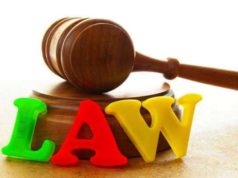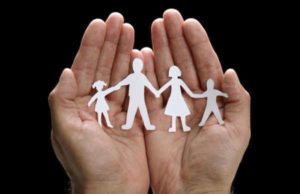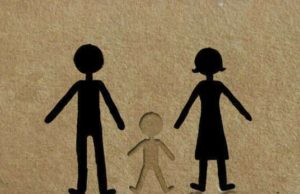
Introduction
The court system is an essential part of the legal system in any country. It plays the role of adjudicating disputes, dispensing justice and enforcing the law. Courts are responsible for hearing and deciding a vast spectrum of cases that fall under civil, criminal, and constitutional laws.
In this article, we will look at the types of cases that are typically tried in a court and the role of the court in dispensing justice. We will also explore the different types of courts, their jurisdictions and functions.
Types of Cases Tried in Courts
Civil Cases
Civil cases are disputes between individuals, organizations, or companies. These cases usually involve monetary compensation for damages, breach of contract, property disputes, and personal injury claims.
For example, a civil case may be initiated when a person sues a company for breach of contract. The case will be heard by a civil court, and the judge will determine whether the contract was breached and award damages accordingly.
Criminal Cases
A criminal case is a legal action taken by the state against an individual or group for an alleged violation of a criminal law. These cases involve crimes such as murder, theft, and fraud.
The state prosecutor must prove the guilt of the defendant beyond a reasonable doubt. If found guilty, the court will sentence the defendant to serve jail time, pay a fine, or both.
Constitutional Cases
Constitutional cases are those that question the interpretation or application of the constitution. These types of cases deal with fundamental rights, liberties and freedoms guaranteed by the constitution. They may also involve the distribution of power between different branches of the government.
For instance, a constitutional case may arise when a law is passed that violates the constitution. The case would be brought to court, and the judge would determine whether the law is constitutional or not.
Administrative Cases
Administrative cases are disputes between individuals and the state, usually involving disputes over decisions made by administrative bodies such as government agencies. These cases involve issues such as zoning laws, environmental policies, and licensing disputes.
For example, an administrative case may arise when a business owner is denied a license to operate. The case will be brought before an administrative court, and the judge will determine whether the decision was justified.
Types of Courts
Supreme Court
The Supreme Court is the highest court in the United States and is responsible for interpreting the Constitution. It has the power to declare laws unconstitutional and is the final court of appeal for all cases. There are nine justices on the Supreme Court who are appointed by the President and confirmed by the Senate.
Federal Courts
Federal courts are established under the United States Constitution and have jurisdiction over cases that involve federal law. They are district courts, appellate courts, and the Supreme Court. Federal district courts are trial courts that hear both civil and criminal cases. Appellate courts review decisions made by the district courts, while the Supreme Court hears appeals from both the district and appellate courts.
State Courts
State courts have jurisdiction over cases that involve state law. They are generally divided into three categories, lower courts, trial courts, and appellate courts. Lower courts hear minor criminal and civil cases, while trial courts hear more serious cases. Appeals from the trial court go to the appellate court.
The Role of the Court
The court plays a critical role in the legal system and has several important functions. These include:
Interpreting and Enforcing Laws
The court interprets the law and ensures that the law is enforced. Judges serve as the final authority on the interpretation of law, and their rulings set precedents that guide the decisions of lower courts.
Protecting Individual Rights
The court is responsible for protecting the rights of individuals against the overreach of the government or other individuals. The court acts as a safeguard against arbitrary or unjust treatment of individuals.
Resolving Disputes
The court is responsible for resolving disputes between parties. It hears cases and makes decisions based on the facts presented, and the law relevant to the case.
Upholding the Rule of Law
The court upholds the rule of law by ensuring that laws are applied without discrimination or favoritism. This ensures that everyone is equal before the law and that justice is served in a fair and impartial manner.
Conclusion
The role of the court is to safeguard the legal system of a country by interpreting and enforcing laws, resolving disputes, protecting individuals’ rights, and upholding the rule of law. It is essential to have a functioning and impartial court system that acts as a safeguard against arbitrary or unjust treatment of individuals.
In conclusion, courts play a critical role in the legal system. They are responsible for hearing and deciding cases that fall under civil, criminal, constitutional, and administrative laws. They interpret and enforce the law, protect individual rights, resolve disputes, and uphold the rule of law. It is important to have a functioning and impartial court system that ensures justice is served fairly and impartially.
There are many types of cases heard in family court. Family courts hear all cases that relate to familial and domestic relationships. While each state has a different system utilized to address family law cases, each state strives to provide families with the best possible outcome in family law cases. In fact, judges strive to provide the best outcome for any involved children, while upholding the law. In some states, divorce is handled in a separate court than juvenile delinquency. In others, there is one court for all family law cases. Issues like divorce, domestic violence, child support, and child custody are determined by family courts.
In fact, most court cases that pertain to familial relationships, are handled by family courts. Included in family court cases are issues of adoption and foster care placement. The role of family courts is to provide fair and just decisions that improve the stability of the family unit. In some cases, individuals involved in disputes wish to come to an agreement in the absence of court proceedings. In fact, adults are able to legally reach agreements in the absence of a judge. However, the judge is often required to approve the agreement. It is quite difficult for individuals involved in any legal dispute to completely avoid court proceedings. The role of family courts continues to grow, as new issues confront the modern family.
Divorce:
Family courts can issue decisions regarding divorce cases. For example, courts will decide issues related to child custody, visitation and support. In addition, the courts may demand that a divorcing couple attempt a resolution to their case, through court ordered mediation. In fact, mediation can help couples to make mutually beneficial decisions on equal distribution of property and assets. In fact, couples that are able to handle their case through mediation are often happier with the results.
For one thing, couples and children involved in court cases tend to suffer form increased stress levels regarding the process. However, there are couples that cannot reach an agreement through mediation, or do not wish to be confront the other spouse in person. In those cases, the courts will make all determinations that relate to the divorce. In addition, couples that have prenuptial or post nuptial agreements in place cannot take any further action before a judge upholds all or part of the agreement. In fact, even couples with those agreements in place will find it necessary to have some issues handled by the family court system.
Domestic Violence:
Domestic violence cases are handled in family court. In fact, the incidence of domestic violence cases reported annually has increased significantly around the world. That is due, in part, to some jurisdictions’ legal ability to press charges in the absence of permission from the victim. In the past, victims had to press charges for the abuser to be charged. In domestic violence cases, abusers can face legal and financial penalties for the abuse.
In addition, abuse victims can seek orders or protection or restraining orders which prevent the abuser from having access to the victim.In fact, states also have the power to issue those orders without permission from the victim. In some cases, abusers have been charged with an offense, even when the victim gave them permission to see them. Domestic violence cases involve many complicated factors, including the psychological damage to the victim. Due to the recognition of those factors, many states have acquired legal authority to handle domestic violence cases in the absence of consent from the victim. In fact, courts have made decisions in the absence of a victim’s testimony.
Marriage:
There are many scenarios that result from marriage and sometimes require intervention in family court. Marriage is at the root of many family court hearings. Family law views marriages as a contract between two individuals who exchange promises to be bound by obligations to each other. Family law courts may also become involved in marriages if the state recognizes common law marriage.
One or both of the spouses may dispute the relationship’s status as a marriage, especially if they believed they were merely engaging in cohabitation, not marriage. A family law court may also examine issues related to whether or not the couple is legally able to receive a marriage license. A marriage may also come under investigation in a divorce proceeding if one of the spouses claims that there was never an legally permissible marriage. In this case, the courts may rule that an annulment must be obtained instead.
Adoption:
There are many types of families that seek to adopt children. In fact, single individuals and same sex couples may desire to adopt children, but may be unable to do so depending on their state’s family laws. In some cases, certain state’s adoption laws are unclear or ambiguous.
In that case, adoption cases are often heard and decided according to a judge’s discretion and based on other similar cases. In states that have clear and strict rules regarding adoption, judges have little discretion in making legal decisions, even if they disagree with the outcome. There are many circumstance which prompt individuals to adopt a child, but every case is determined in the best interests of the child.
While there may be two couples that seek to adopt for the same reason, it is possible that only one, or neither couple may be granted the adoption because of the intricacies involved in family law. However, judges are likely to grant adoptions that are beneficial to the child and the adopting family, as long as they fall within the confines of the law.
Child Support:
Child support is always handled as an independent issue by the courts. In fact, non custodial parents are not the only ones that can be required to pay child support. For example, custodial parents sometimes have to contribute money to activities that the child takes part in when in the care of the non custodial parent.
Child support payments are awarded completely exclusive of all other issues. Once a child support order has been issued by the court, it is very difficult to have it modified or terminated. In fact, family courts often require child support orders to be filed with the state’s child support enforcement agency to ensure that the order is followed by both parents.
In addition, parents found to be in non compliance with a child support order, face harsh penalties, including loss of driving privileges, passport privileges, incarceration and termination of parental rights. Even parents that receive payments can be found to be in non compliance. For example, some states dictate the manner in which child support can be spent, and the courts may require proof. Both custodial and non custodial parents can be found in non compliance of child support, and both can face penalties.
Child Custody:
Issues of child custody are handled by the family courts as an issue independent of any other decisions. Child custody is decided based on many factors. The courts will not allow a parent to have unsupervised visits if they believe the child’s safety is jeopardized in the company of that parent.
However, they may allow court supervised visits with that parent. In the absence of such issues, the courts usually grants primary custody to one parent, making them the custodial parent. While the other parent may be the non custodial parent, they are still likely to have the ability to make some decisions regarding the upbringing of the child. In fact, the courts will try to encourage a collaborative effort between both parents, so that they can make many of the important decisions together.
However, some parents are unable to accomplish that goal, and the judge will grant one parent all of the decision-making power. However, they are still likely to grant visitation rights to the other parent. In fact, those rights will be dictated down to the very second. Court orders generally require that the child be returned to the custodial parent at a very specific time. If either parent violates child custody orders, they can face harsh penalties, including termination of parental rights.























